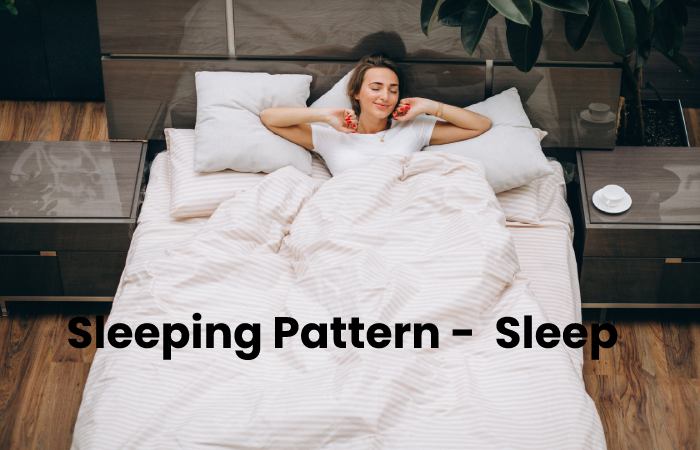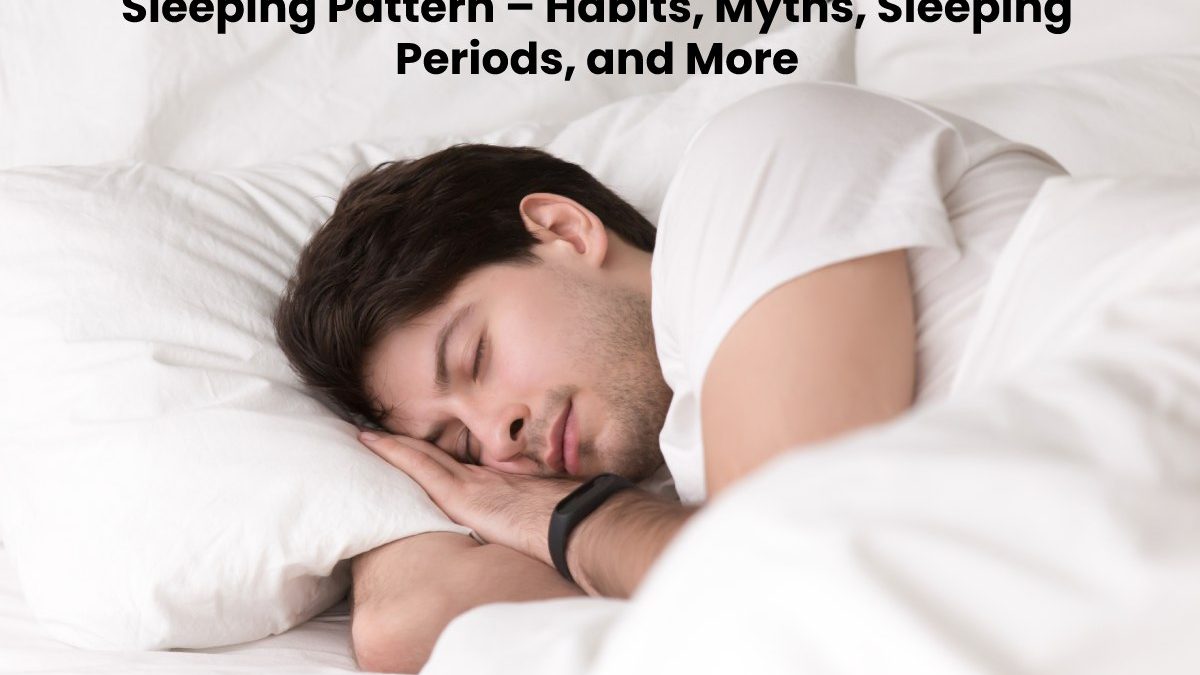Table of Contents
Good sleep habits for good health – Sleeping Pattern
Sleeping patterm – Good sleep improves brain performance, mood, and health. Sometimes the pace of modern life hardly gives you time to stop and rest. Sleeping pattern can regularly make getting a good night’s sleep seem like a dream. But a nap is just as crucial to good health as diet and exercise.
However, healthy sleep encompasses three essential things. The first is the number of hours you rest. The second is the quality of your nap: having uninterrupted, restful sleep. The last is a regular nap schedule. Not getting enough quality sleep frequently increases your risk of many diseases and disorders, ranging from heart disease and stroke to obesity and dementia.
Sleep quality can be more of a challenge for people who work the night shift or irregular hours. And times of high stress, like the current pandemic, can disrupt our usual sleep routines.
Sleeping Pattern – Sleep to Mend

During sleep, specific repair processes occur in the body primarily or most effectively. In studies with mice, the team found that the drainage system removes some of the proteins linked to Alzheimer’s disease. These toxins were eliminated twice as fast from the brain during sleep.
Myths and Truths about Sleeping Pattern
- Most adults need at least seven hours of sleep or more each night. Experts recommend that school-age children get at least nine hours of sleep a night and teens between eight and ten.
- There are many misunderstandings about sleep. One is that adults need less sleep as they age. That is not true. However, sleep quality can worsen as you age.
- In a recent study, Wright and his team looked at people with consistent poor sleep. It compares to sleep-deprived people who slept in late on weekends.
- The weekend did not help to catch up on sleep. Both groups of people gained weight from lack of sleep. Their bodies’ ability to control blood sugar levels also worsened. On the other hand, more sleep isn’t permanently healthier
Sleep disorders – Sleeping Pattern
- Some people have conditions that prevent them from getting enough sleep, no matter how hard they try. These problems are called sleep disorders. The most common sleep disorder is insomnia. It happens despite having time to sleep and a suitable sleeping environment. It can make you feel tired or restless during the day.
- Insomnia can be short-term, where people have difficulty sleeping for a few weeks or months. Long-term insomnia lasts three months or more. “A few other people have known this throughout the pandemic.
- Sleep apnea is another common sleep disorder. In sleep apnea, the upper airways blockers during sleep. It reduces or stops airflow, which wakes people up at night. This condition can be dangerous.
- If you regularly have trouble sleeping, talk to your health care provider. These look for sleep disorders. They may also do tests, including sleep studies. You may ask to keep a sleep diary to track your sleep for several weeks.
Sleep Better
If you’re having trouble sleeping, it can be frustrating to hear how important it is. However, there are simple things that can improve your chances of getting a good night’s sleep. See the Wise Choices box for tips to help you sleep better.
Treatments are available for many common sleep disorders. Cognitive-behavioural therapy can help many individuals with insomnia nap better. Medicines can also help some people.
Sleep and your Health
Not getting sufficient sleep can be bad for your well-being in some ways. It would be best if you had plenty of rest to restore your brain and body. Many Americans only sleep 6 hours or less per night. As life gets more hectic, it’s much easier to go longer without rest.
Why do you Need to Sleep?
Sleep gives your body and brain time to recover from the day’s stresses. After a good night’s sleep, you are more efficient, and you can better make decisions. Sleep helps you feel more alert, upbeat, and relate better to people.
How many hours of sleep do you need?
Different people need different amounts of sleep. Most adults need 7-8 hours of sleep per night for good health and mental function. Some adults need up to 9 hours of sleep per night.
Why may I not be getting enough sleep?
There are many reasons why hours of sleep are in short supply—busy schedule. Evening activities, whether professional or social, are one of the main reasons people don’t get enough sleep. It is much more challenging to get a good night’s sleep in a boisterous room or bright, cold, or hot.
Electronic
Tablets and cell phones that emit sounds at night can affect sleep. They can also make it terrible to detach from the awakening world.
Medical conditions
Certain health conditions can prevent you from sleeping well. These include arthritis, back pain, heart disease, and conditions like asthma that make it difficult to breathe. Depression, anxiety, and substance abuse can also make it difficult to fall asleep. Some medications affect sleep.
Sleep stress
After many nights of tossing and turning, being in bed can make you feel anxious and awake, even if you feel exhausted.
How do we know if our Sleeping Pattern is of Good Quality?
We often think of these people when we talk about poor sleepers—big mistake. There are sleep tests worth knowing. Anyone without insomnia can sleep poorly without knowing it.
Sometimes poor sleep is associated with a specific illness or disease, such as sleep apnea. A common disorder in which the patient pauses for one or more breaths or takes shallow breaths during sleep can be life-threatening. But there may not be a problem with the naked eye in other people, and they can also sleep the recommended seven or eight times a day.
Conclusion
The alteration of the sleep-rest pattern can have serious consequences depending on its frequency. Therefore, Sleeping pattern differentiating fatigue from frequent insomnia will be essential for the patient’s health, even to avoid one of the leading causes of death, suicide, or to improve quality of life.
We intend to know the right way to assess the therapeutic sleep pattern and to be able to identify possible problems or alterations in it to propose treatments and obtain the rest of the person, all based on scientific evidence.


